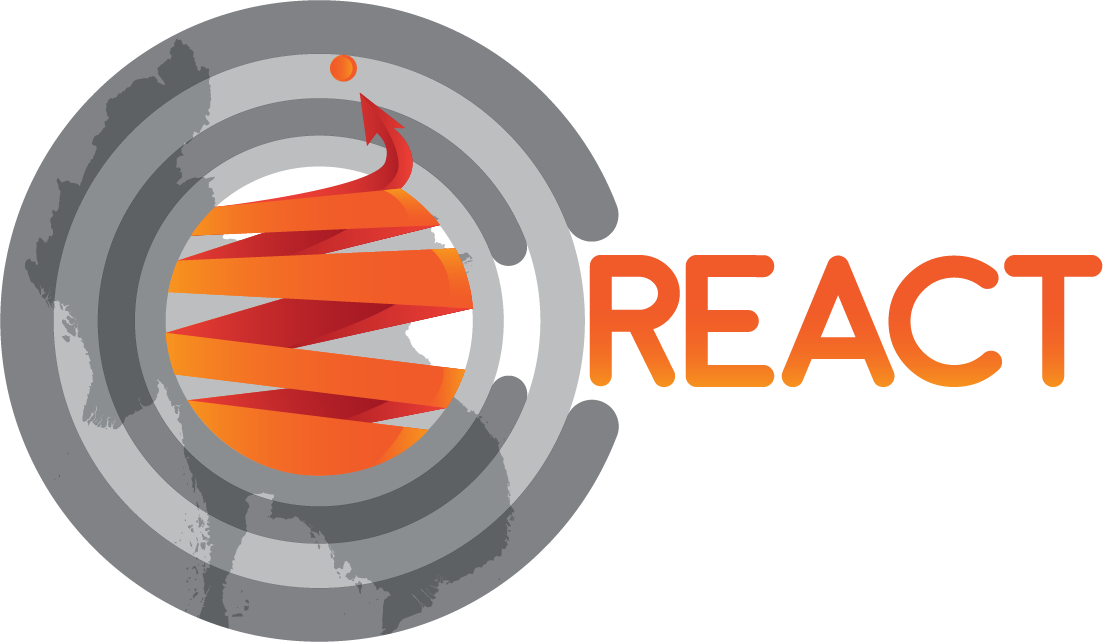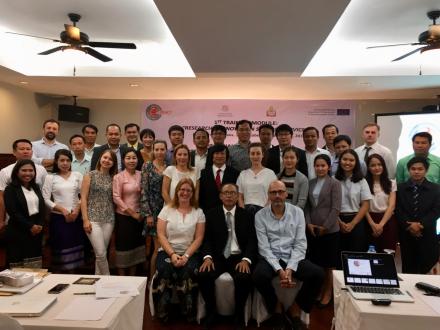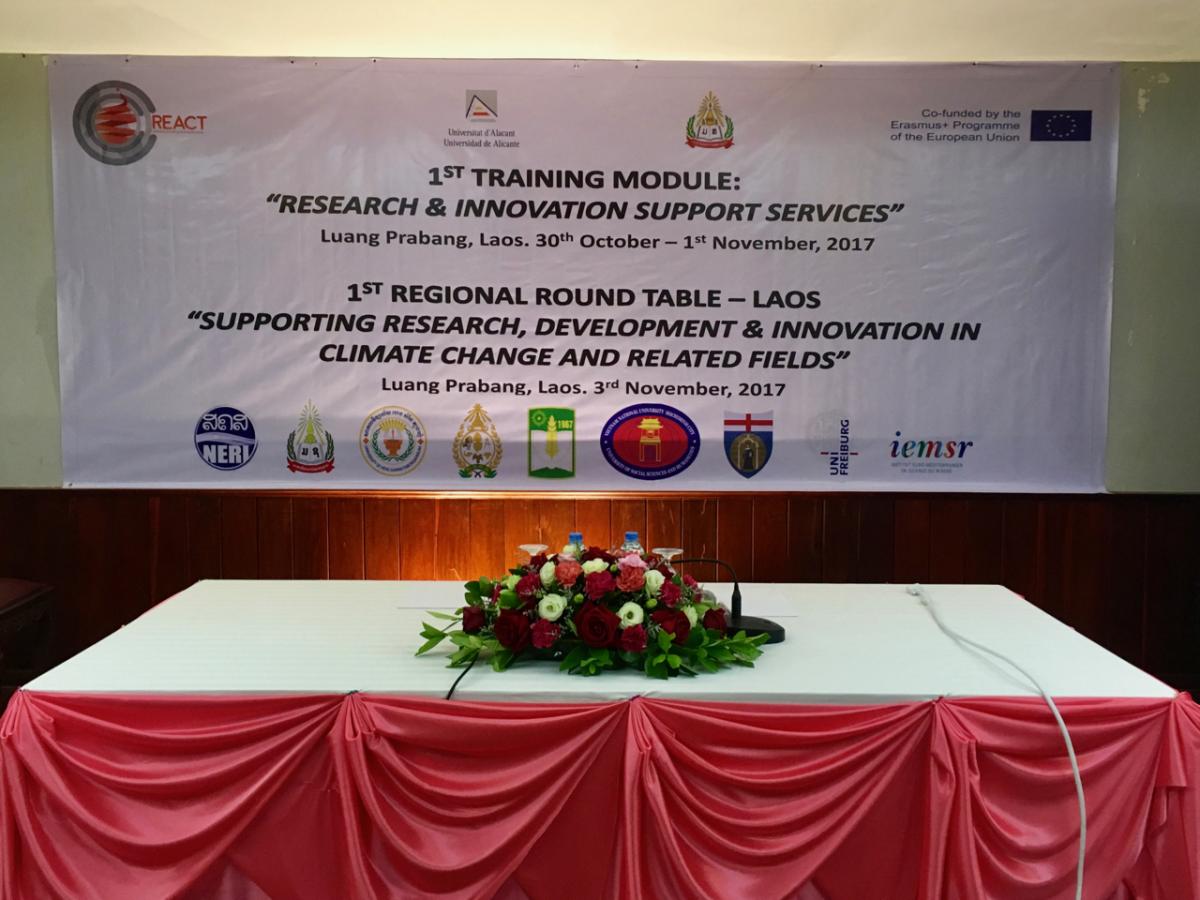
The REACT project held its first Training of Trainers module “Research & Innovation Support Services” in Luang Prabang (Laos) between October 30th and November 1st, 2017. Hosted by REACT partner Souphanouvong University, and delivered by trainers from the University of Alicante, the Module was inaugurated by Acting President of Souphanouvong University Prof. Vixay Chansavang and gathered over 40 participants from 4 EU, 2 Lao, 2 Cambodian and 2 Vietnamese universities.
The objectives of the module were for trainees to gain an understanding
- On how Research & Innovation support services are organised and what their roles are, in order to be able to set up the REACT Units.
- Of how research in HEIs is evaluated and promoted in European institutions, and where researchers can best access data and publish results, in order to see how this can be adapted/applied in Southeast Asian institutions for Climate Change research.
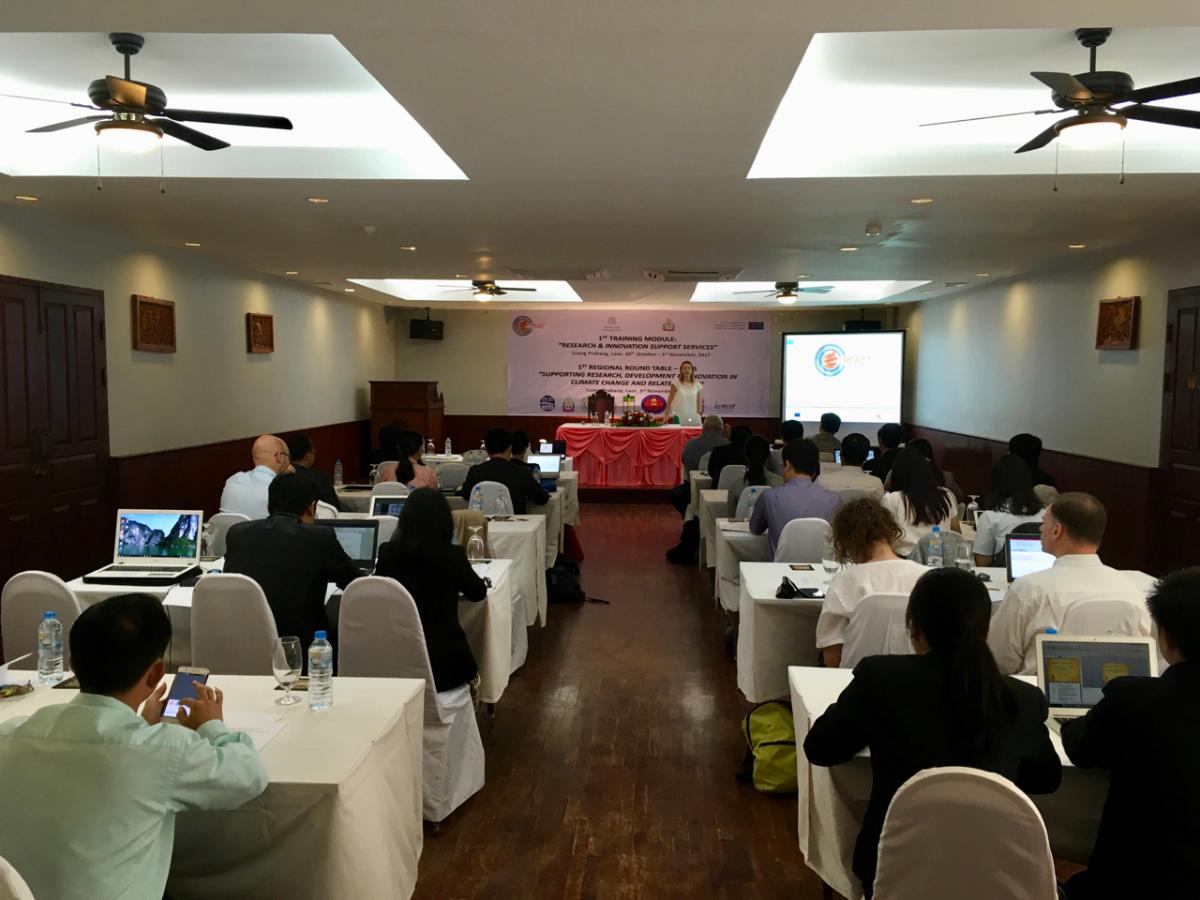
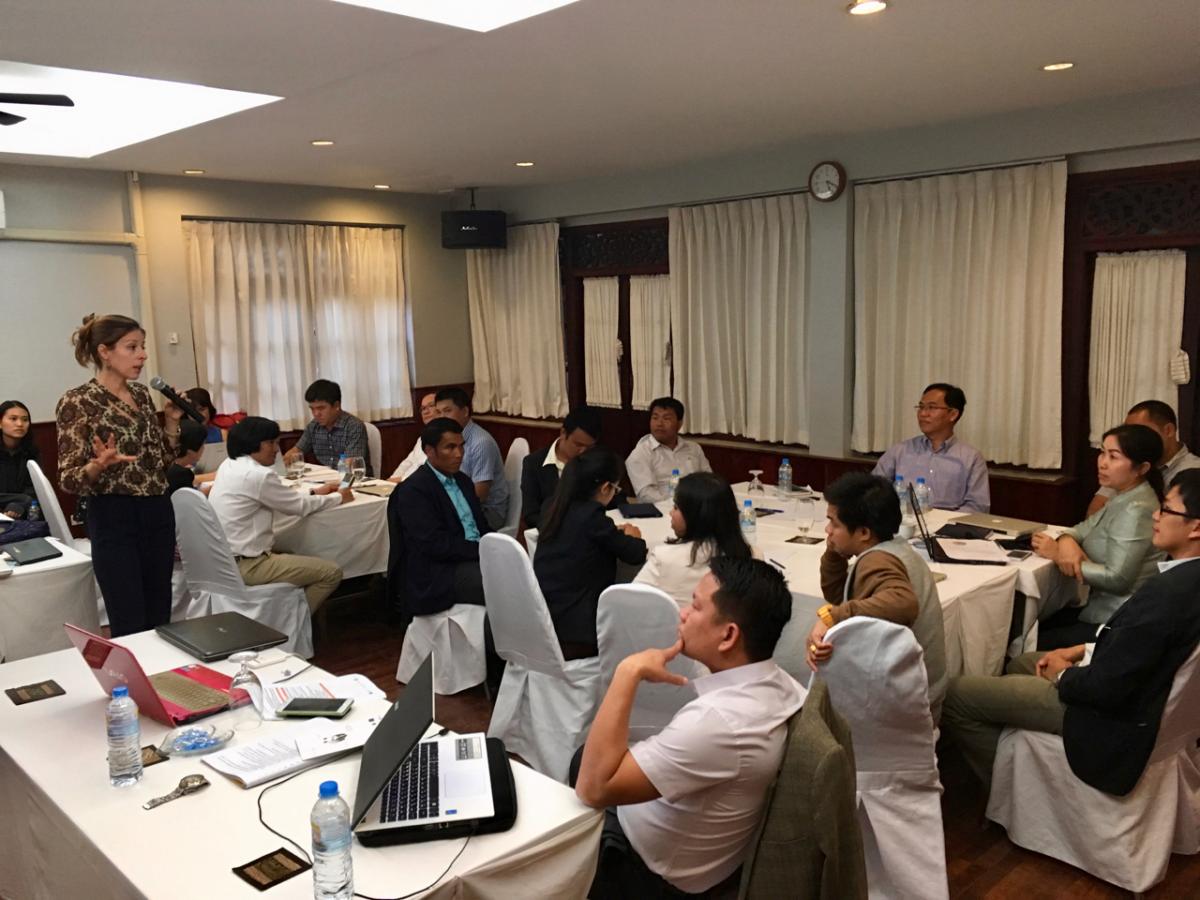
Following a methodology of plenary presentations and group exercises, specific topics addressed included Mapping and engagement strategies for stakeholders; Objectives, models, structures and profiles of a research & innovation support unit; Impact of said units at the university level and within the innovation system; Creating a research portfolio; Technology promotion and marketing strategies; Drafting a technology offer in Climate Change; Evaluation of research & development activities; research databases employed in R&D activities; How and where to publish: the relevance of research groups and interdisciplinary research.
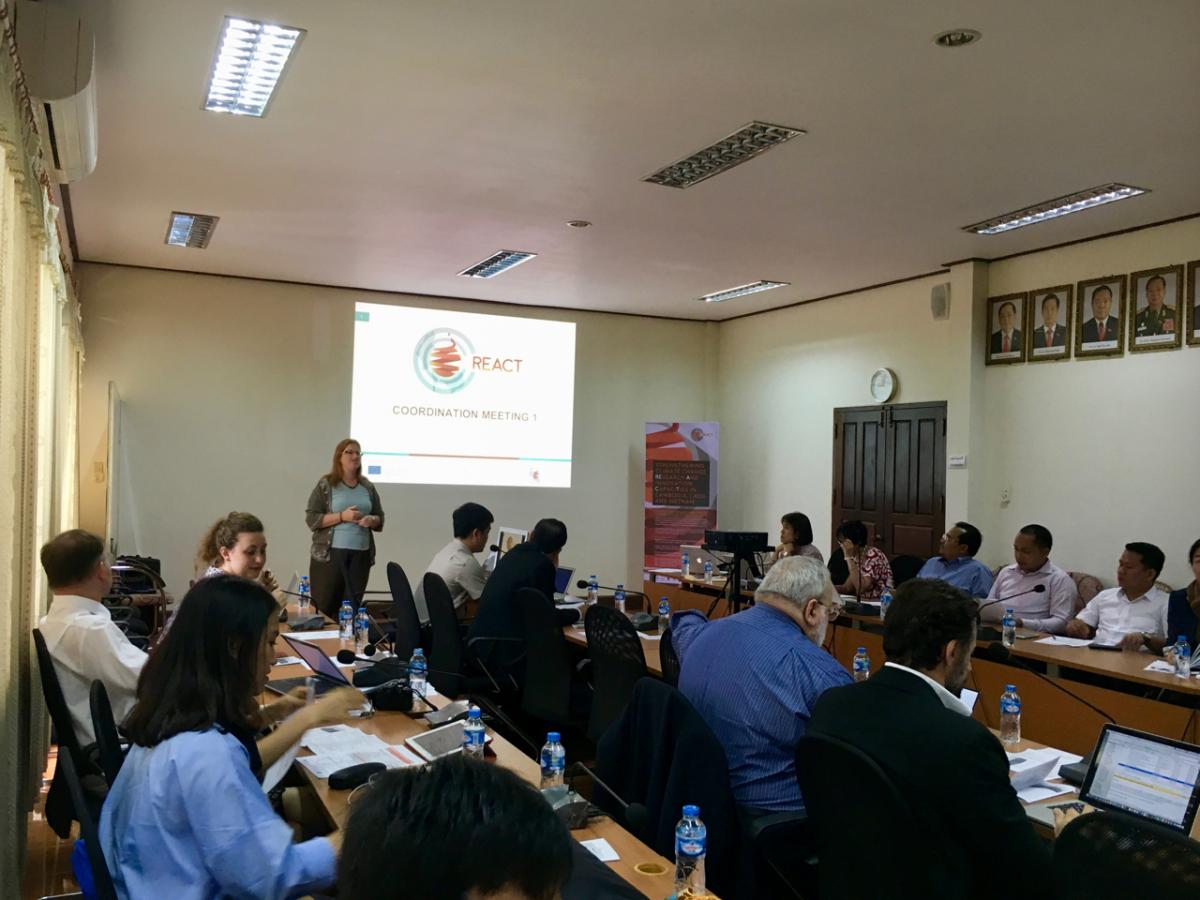
The day after the training, on November 2nd, the first REACT Coordination Meeting took place on the premises of Souphanouvong University, allowing for discussions on several key project activities, such as the preliminary results of the project Needs Analysis and steps needed to complete it, how to go about setting up the REACT Units, structure and organisation of internal training replications, National Seminars and Regional Round Tables.
